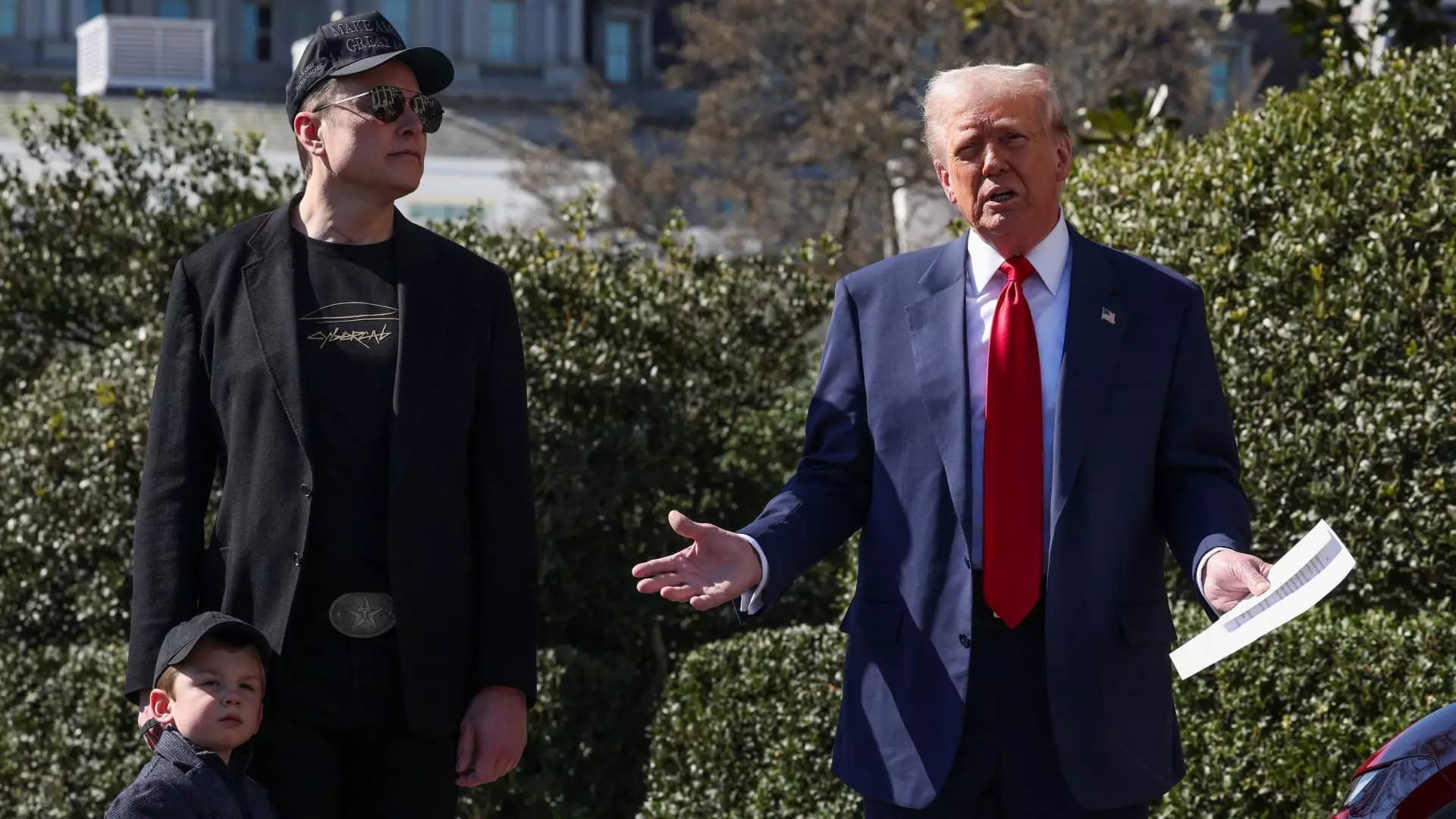In an era where political narratives often distort reality, the ongoing discord between Donald Trump and Elon Musk exemplifies the complexity of balancing national interests with private enterprise. Critics on the center-right accuse Trump of supposedly aiming to hobble Musk’s technological empire, yet the president’s recent declarations suggest a different story: one of pragmatic endorsement rather than sabotage. To truly grasp the gravity of this clash, we must look beyond superficial accusations and understand the underlying economic and strategic calculations at play.
Contrary to the sensational headlines that claim Trump seeks to destroy Musk’s companies, his statements reveal a desire for a robust economic environment that benefits all. A thriving business sector, particularly in cutting-edge industries like electric vehicles and aerospace, is integral to America’s global competitiveness. However, there’s an undeniable tension rooted in the complex web of government subsidies, defense contracts, and regulatory policies—areas where Musk’s companies heavily participate.
The notion that Trump’s stance is purely antagonistic ignores the nuanced reality. The president’s emphasis on promoting business growth—”Thrive like never before”—underscores a belief that America’s prosperity relies on its entrepreneurial giants. Still, this trust is tenderly balanced with concerns over government dependencies and national strategic interests. Musk’s reliance on federal contracts for SpaceX and Tesla’s lucrative environmental credits exemplifies a fragile economic model that is vulnerable to political shifts.
Subsidies, Contracts, and the Illusion of Independence
Musk’s enterprises, especially Tesla and SpaceX, have become emblematic of modern American innovation but also exemplify the risks of federal reliance. The $22 billion-plus in government contracts amassed by SpaceX since 2008, coupled with Tesla’s lucrative environmental credits, form a linchpin of their financial sustainability. These incentives and contracts are double-edged: they accelerate technological advancements, but they also entangle industry with political currents that can shift unpredictably.
The recent scrutiny of federal contracts under the Trump administration’s review underscores a pivotal debate—should America lean on its former posture of interventionism to bolster specific industries, or should it foster a more autonomous ecosystem free from political influence? The truth, as center-right policymakers argue, is that reliance on subsidies and government contracts could undermine long-term competitiveness by creating dependencies instead of fostering innovation driven by market forces.
Furthermore, the White House’s reluctance to endorse collaborations with Musk’s AI startup xAI signifies a broader skepticism towards innovation that originates outside traditional government channels. Such attitudes threaten to stymie the very advancements necessary for U.S. leadership in the next frontier of technological warfare and economic dominance.
The Economic Stakes of Regulatory Credits and Future Risks
Tesla’s significant revenue from regulatory credits points to an essential strategic element: government policies that incentivize green technology are a major contributor to its profitability. But relying on these credits isn’t a sustainable growth model; it exposes Tesla to policy swings and legislative rollback efforts, especially when political leadership shifts.
The mention of the “One Big Beautiful Bill Act” in Tesla’s recent filings highlights a potential vulnerability—if such incentives are diminished or eliminated, Tesla’s financial performance could suffer substantially. This dependency raises an uncomfortable question: is America fostering innovation or merely subsidizing it at the taxpayer’s expense?
The decision by the Trump administration to review and potentially curtail key SpaceX and Tesla contracts reflects a belief that strategic priorities may need to be reassessed. While these contracts are vital, their reevaluation underscores an acknowledgment that true national strength derives from resilient industries that do not rely solely on government support. Center-right policy advocates might argue for a cautious approach—balancing support with independence—aiming for a future where private enterprise leads without heavy-handed government crutches.
The Future of American Innovation: A Delicate Balance
The ongoing confrontation between Trump and Musk symbolizes more than personal or political disputes; it embodies the broader debate over America’s path forward. The temptation to manipulate or micromanage industries deemed too close to government is fraught with risks—stifling the entrepreneurial spirit necessary for technological leadership.
Conversely, genuine support for innovation involves creating a framework where private companies can thrive organically, unencumbered by the fear of political retribution or the loss of vital subsidies. The challenge lies in crafting policies that incentivize private investment and technological breakthroughs without creating reliance that leaves industries vulnerable to political whims.
By critically examining both sides, it becomes clear that America’s future in innovation depends on maintaining a healthy balance—encouraging entrepreneurial freedom, respecting strategic government investments, and reducing dependency on fluctuating political support. This is a trajectory that center-right liberals can champion: fostering a thriving, competitive marketplace rooted in sound economic principles rather than short-term political expediency.
Ultimately, the Biden and Trump eras reveal the delicate dance of power, policy, and progress. Smart leadership will harness the competitiveness of both government and private enterprise, ensuring that the future isn’t dictated by political cycles but driven by resilient, innovative American industries capable of standing independent on the world stage.

